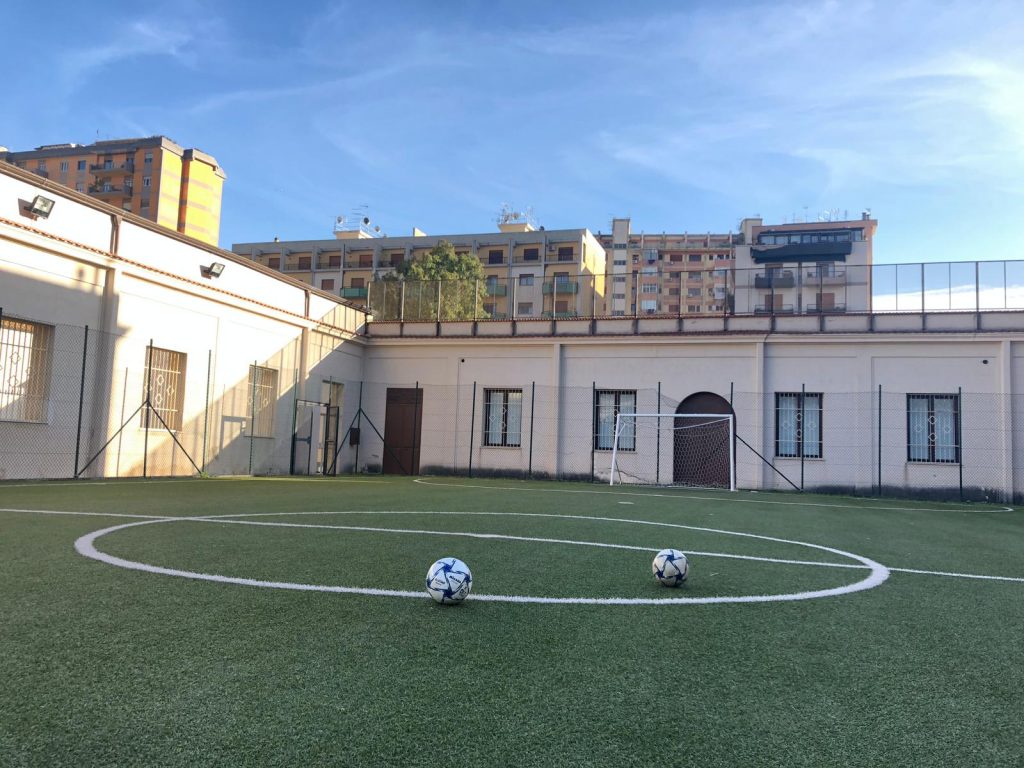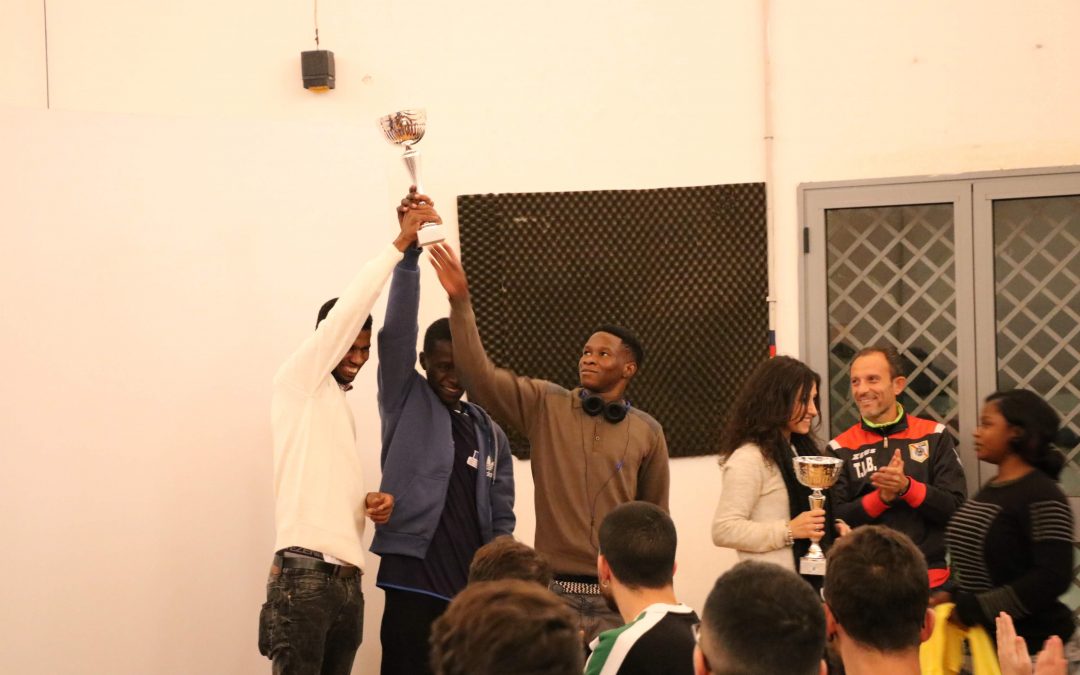On Wednesday 28th of November 2018, at the facilities of CUS (University Sport Center) Palermo, we celebrated the conclusion of the project I SPORT – Inclusive Sport Project Opposed to Radicalization Tenets, which, starting from March 2018, involved several entities of the city of Palermo, such as CEIPES, the leading institution of the project , the University of Palermo, CUS Palermo and the Malaspina Youth Penitentiary Institute, with the contribution of the Municipality of Palermo, the Ivorian Community in Sicily, the Foreign Students’ Association, the centers for migrants and the SPRARs of Palermo.
The final event of the project, which took place on the afternoon of November 28th, represented a milestone in three stages: first of all the sports tournaments for which the participants were trained during all the project activities during the year; following, a seminar organized by CEIPES in collaboration with UNIPA, aimed primarily at the students of Pedagogical and Sport Sciences and managed by the Professors of the University of Palermo: A. Palma, A. Bianco, G. Battaglia and E. Caravello; In the end, the award ceremony and the final conference in which several speakers took part, including not only the protagonists of this surprising experience, such as, for example, Dr. I. Kobena, recently elected President of the Committee of Cultures in Palermo and founder of the Ivorian Community in Sicily, the project manager of CUS Dr. R. Genchi, as moderator of the conference, together with the President R. Siculiana who hosted the entire event, but also Prof. Antonio Palma, Deputy Director of the SPPEFF Department of the University of Palermo, who also came to represent the Rector F. Micari, as well as Scientific Director of the School of Sport, Delegate of the Rector to the coordination of sport policies of the University and Chairman of the University Sport Committee, and, Dr. G. Mattina, Council Member of the City of Palermo for the Social Affairs, who underlined how important it is to invest for the common good and to cooperate for the society in which we live, as it happens for significant initiatives such as the I – SPORT project.
This project has been defined, by most of the involved parts, a great “challenge”. The reason for this lies in the diversity of the addressed target groups: university students, young prisoners at the Malaspina IPM and the youngsters hosted by the centers for migrants of Palermo. This project has allowed an opening towards the territory and has given everyone the opportunity to make unique and precious experiences of comparison. in particular for detainees and migrant children, who come from extremely difficult and strong experiences, as stated during the final conference by Dr. Clara Pangaro, director of IPM Malaspina and her collaborator dott. G. Scattarreggia. ISPORT, therefore, was both a challenge and a success. The success of all those who, from the first moment, have contributed for the aim of this project, as it was for the three coaches of CUS Palermo: Salvatore La Bianca for football, Caesar’s Caesar for athletics and Pietro Scaduto for the volleyball, who closely followed every activity carried out with the participants.
On the occasion of the final event, moreover, the members of CEIPES, in particular Dr. Irene Capozzi, and Prof. Elisabetta Di Giovanni, together with Dr. Emanuela Caravello from UNIPA (University of Palermo), presented another project result: the final manual, distributed to all the presents, which contains both the non formal educational methods used during the project activities and the sport training methods implemented by the coaches.
In addition to this event, to allow the participation of those who could not take part in external activities, such as the young prisoners at the Penitentiary Institute, last 13th of December in the afternoon the participants to volleyball activities met at the IPM “Malaspina” to play the final tournament. Together they enjoyed a final moment of sharing and reflection on the beautiful moments lived and on those ones more difficult and significant, with the hope of a healthy and happy future for the detained boys and the promise with the head of the institute to cooperate for new projects.
ISPORT, indeed, was certainly the forerunner and pilot of many other projects that will embrace important issues such as social inclusion. It was a small drop in the sea of the objectives that can be achieved, also through European funds, and above all it represented a great example, in this particular historical context, of how much the union that disregards each other’s background, represents a great strength and a step towards a healthier society free from unnecessary prejudices.

